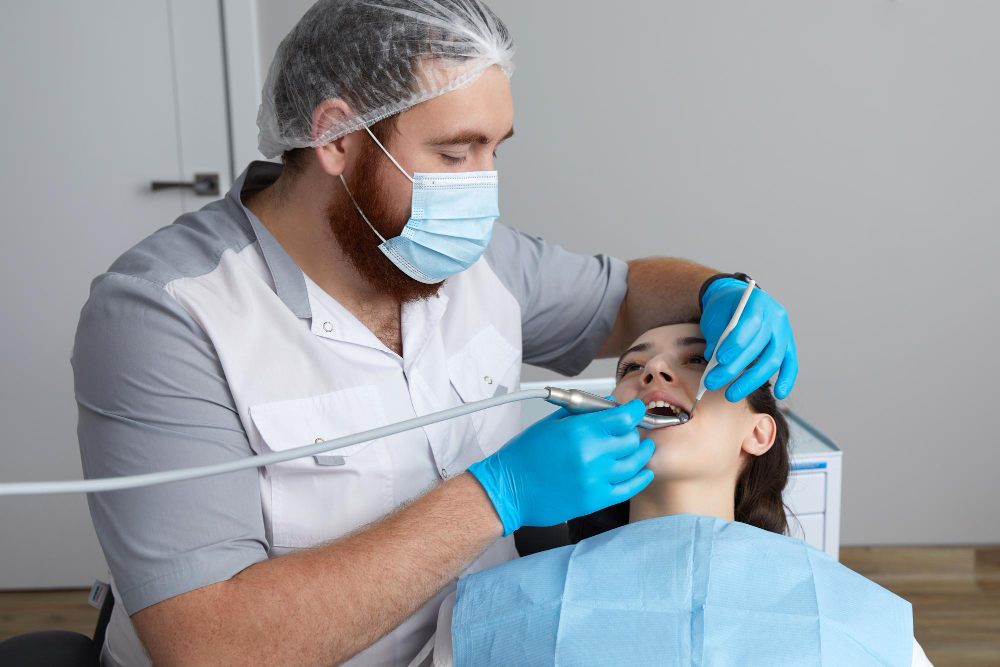What is RCT (Root Canal Treatment)?
Root Canal Treatment, often called RCT, is a dental procedure that saves a tooth when it is badly infected or damaged. In many cases, RCT helps avoid tooth removal. Dentists use this treatment to clean out the inside of a tooth and seal it. Because of this, RCT is important for keeping your natural teeth healthy and strong.
Symptoms Indicating the Need for RCT
Sometimes, your teeth may show signs that you need a root canal procedure. Early attention can help save your tooth. Look out for these symptoms:Severe tooth pain, especially when chewing or bitingLong-lasting sensitivity to hot or cold foodsSwollen or tender gums near a toothDarkening of the toothPimple-like bumps on the gums
However, not all pain means you need RCT. Therefore, always check with your dentist if you notice these signs.
Causes Leading to RCT
Many factors can damage the inside of a tooth and lead to infection. As a result, you may need RCT. Common causes include:Deep tooth decay or cavitiesRepeated dental procedures on the same toothCracks or chips in the toothInjury to the tooth, even if there is no visible crack
When bacteria reach the tooth’s inner pulp, infection can develop. If left untreated, this infection may spread and cause more pain.
Diagnosis: How Dentists Identify the Need for RCT
First, your dentist will ask about your symptoms. Next, they will examine your mouth and teeth. Often, dentists use X-rays to see if there is an infection or damage inside the tooth. In some cases, they may test your tooth’s response to hot, cold, or pressure. With these steps, your dentist can decide if RCT is the best option for you. According to the American Dental Association, early diagnosis helps improve treatment success.
The RCT Procedure: Step-by-Step
Many people worry about the root canal procedure, but it is usually not painful. Here is what you can expect:Your dentist numbs the area around the tooth.They make a small opening in the top of the tooth.The dentist removes the infected pulp from inside the tooth.Next, they clean and shape the inside of the root canals.The dentist fills and seals the space to prevent further infection.Finally, a filling or crown is placed to protect the tooth.
Most RCTs are completed in one or two visits. Because of modern tools, the process is safe and effective.
Recovery and Aftercare Tips
After RCT, your tooth may feel sore for a few days. However, most people return to normal activities quickly. To help your recovery, follow these tips:Take pain medicine as your dentist suggestsAvoid chewing on the treated tooth until it is fully restoredKeep your mouth clean by brushing and flossing gentlyAttend all follow-up visits
If you notice swelling, severe pain, or fever, contact your dentist right away. With proper care, your treated tooth can last many years.
Prevention: How to Avoid Needing RCT
Good dental habits can help you avoid root canal treatment. Here are some ways to protect your teeth:Brush your teeth twice daily with fluoride toothpasteFloss every day to remove food and plaqueVisit your dentist for regular check-ups and cleaningsLimit sugary foods and drinksWear a mouthguard if you play sports
By following these steps, you can lower your risk of tooth decay and infection. This means you are less likely to need RCT in the future.
Frequently Asked Questions about RCT
Is RCT painful? Most patients feel little or no pain during the procedure because of numbing medicine.How long does a root canal procedure take? Usually, it takes one to two visits, each lasting about 60 to 90 minutes.Can a treated tooth last forever? With good care, a tooth with RCT can last many years, sometimes even a lifetime.Are there alternatives to RCT? The main alternative is tooth removal, but saving your natural tooth is often better for your dental health.Where can I get root canal treatment in my city? Many dental clinics offer RCT. Ask your local dentist for more information about root canal treatment in your area.
In summary, RCT is a safe and effective way to save a damaged tooth. If you have symptoms or concerns, consult a dentist for personalized advice about RCT and your dental health.

